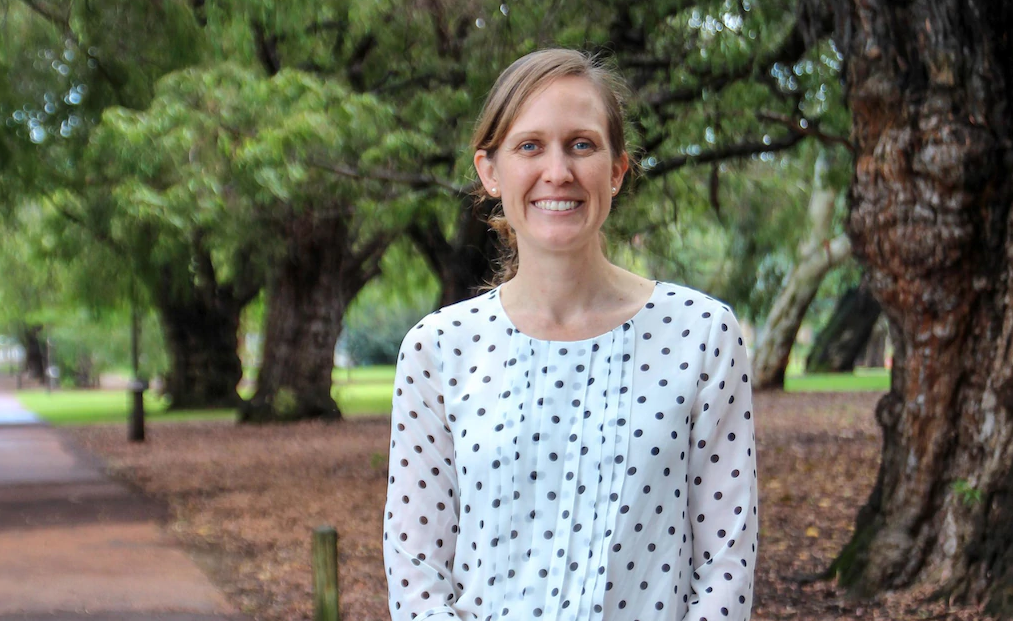Outstanding infectious diseases researcher and paediatrician, The Kids Research Institute Australia’s Dr Asha Bowen, was last night named Woodside Early Career Scientist of the Year at the 2017 Premier’s Science Awards.
The Premier’s Science Awards recognise and celebrate the achievements of the Western Australian science community, including outstanding scientific researchers and science engagement activities.
The Institute had two other finalists in the Awards – Professor Donna Cross in the Scientist of the Year category, and the Institutes ’60 Second Science’ video series, led by Professor Andrew Whitehouse and the Autism Research Team, in the Chevron Science Engagement of the Year category.
Dr Asha Bowen received the award in recognition of her research to reduce the burden of infectious diseases in Aboriginal Australian children, particularly skin infections – a major cause of health problems in remote communities.

The 2017 Woodside Early Career Scientist of the Year, Dr Asha Bowen, with the Premier of WA the Hon Mark McGowan MLA and Mr Sean Salter of Woodside. Photo by Jason Thomas.
Dr Bowen is currently the lead researcher in the first comprehensive skin control program for WA, a collaboration with health services and communities in the Kimberley, which aims to halve the incidence of skin infections in Kimberley Aboriginal children. She is also leading the development of national guidelines on treatment, prevention and public health control of skin infections.
Dr Bowen said she was incredibly honoured to receive the award.
“Prioritising Aboriginal health is my passion and it is such an honour to be recognised for the really important research we do at The Kids Research Institute Australia to improve skin health for Aboriginal children and adults,” she said.
“The major driver for me is the recognition of the importance of improved health and development for Aboriginal children and to make sure we work with our partners and communities themselves to tackle problems in a collaborative and sustainable way.”
“Our research in the Kimberley is a true and genuine partnership with Aboriginal communities and health services, and this research would not be possible without the amazing contributions and input from the people who live with these problems every day.”
The Kids Research Institute Australia Director, Professor Jonathan Carapetis, said the honour was testament to the high calibre of research being done by Dr Bowen and her team at The Kids.
“Asha is leading the way in skin infection research in Western Australia and her work could make a big difference for Aboriginal kids,” he said. “She’s a real asset to the Institute and we’re very proud of the work she is doing.”
To read the Premier’s media release, click here.

About Dr Asha Bowen
Dr Asha Bowen is a clinician-NHMRC early career researcher at The Kids Research Institute Australia and Paediatric Infectious Diseases specialist at Princess Margaret Hospital. She is passionate about reducing the burden of infectious diseases in Aboriginal Australian children, particularly skin infections – a major cause of health problems in remote communities.
About 45% of remote-living Aboriginal children are affected by impetigo (skin sores) at any one time – the highest prevalence in the world – and scabies is endemic. These infections can lead to life-threatening conditions including kidney disease, rheumatic heart disease, skeletal infections and blood poisoning.
Her PhD, the Skin Sore Trial, was a world-first trial of the treatment of impetigo in remote Aboriginal children. The results, published in The Lancet, were presented internationally and translated into local, regional and national guidelines.
She is also leading the first comprehensive skin control program for WA, which aims to halve the incidence of skin infections in Kimberley Aboriginal children; and is leading the development of national guidelines on treatment, prevention and public health control of skin infections.
Her research aims to reduce the burden of disease by implementing the latest evidence-based treatment regimens, and to increase education, training, diagnosis and understanding around skin infections.
